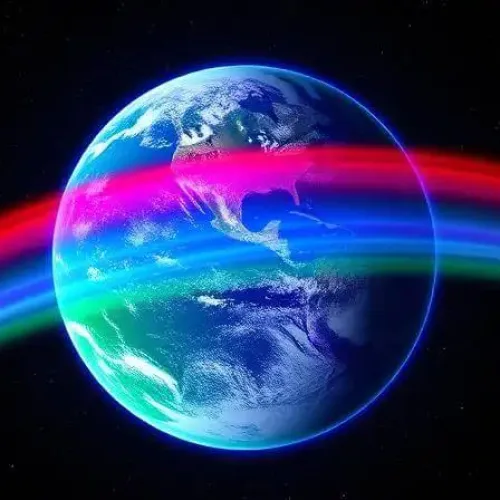The effects of climate change are no longer a faraway concern. Around the world, people are feeling its immediate effects. From rising temperatures to severe weather patterns, these changes are transforming lives as we know about it. Climate change is now directly affecting human health, food security, and even the livability of some areas. In this post, we will take a closer look at the ways that climate change is impacting humans and how it is reshaping our daily life.
Rising Global Temperatures Impact Human Health
A major consequence of climate change is the increase in global temperatures. As heatwaves are now more frequent, leaving many people at greater risk of dangerous heat related problems. High temperatures stress the body and cause heat exhaustion and dehydration. The elderly and children face the highest risk. In cities, the urban heat island effect makes heat even worse.
People living in such areas with limited access to air conditioning or cooling systems are most at risk. Hospitals in many countries report an increase in heat related cases during the summer months, indicating that these rising temperatures are taking a heavy toll on human health.
1. Extreme Weather and Climate Change

Another significant impact of climate change is the increase in extreme weather patterns. Storms, floods, and wildfires are becoming more frequent and severe, displacing millions of people from their homes. The loss of property, along with the physical and emotional trauma of being uprooted, not only disrupts lives, but also leads to permanent psychological anxiety.
Many areas now facing repeated floods or droughts that damage homes and destroy livelihoods. Communities in coastal areas are particularly vulnerable because their homes and farmland are threatened by rising sea levels. As these events continue, more people will be forced to leave their homes in search of safer environments, creating a global migration crisis.
2. Threat to Food Security
Climate change is also altering food production patterns, affecting global food security. Extreme temperatures, droughts, and floods destroy crops, leading to food shortages in many parts of the world. Farmers struggle to grow staple foods such as wheat, rice, and maize, which are sensitive to changing weather conditions.
Increasing CO2 levels also impact the nutritional value of crops, reducing protein and essential nutrients. This makes communities more vulnerable to malnutrition, especially in areas where food availability was already an issue. As food becomes scarce, prices rise and put additional pressure on low-income families, who may struggle to afford enough to eat.
3. Air quality and respiratory problems
Climate change contributes to poorer air quality through increased levels of greenhouse gases, which in turn leads to an increase in respiratory illnesses such as asthma, allergies, and chronic obstructive pulmonary disease (COPD). Heatwaves and wildfires associated with climate change created the air pollution, exacerbating these conditions.
Children and the old age peoples are susceptible to these health effects, but no one is immune. As wildfires become more frequent due to drier conditions, the smoke further pollutes the air, spreading over larger areas and putting millions of people at risk of respiratory problems.
4. Water scarcity
Water scarcity is a growing concern as climate change disturbed the water supplies. Prolonged droughts cause water shortages, while floods contaminate water sources. Access to clean water is essential for health, agriculture, and sanitation. Lack of clean water leads to diseases such as cholera and dysentery, especially in areas that are already struggling with access to clean water.
5. Climate Change and Its Psychological Effects
Disrupted ecosystems, natural disasters, and loss of livelihoods due to climate change not only have profound psychological effects, but also lead to stress, anxiety, and even post-traumatic stress disorder (PTSD). As a result, depression often follows, and these mental health disorders can appear quickly, and then immediate attention will be requiring.
Actions to be Taken for a Healthier Future

Despite the challenges, there are a lot of ways to mitigate the effects of climate change:
1. Raising Awareness about Climate Change:
The first step toward reducing the effects of climate change on human health is raising awareness. Communities, schools, and governments must prioritize education on climate change, its impact on health, and the urgent need for collective action.
2. Transition to Sustainable Energy Sources:
Reducing the use of fossil fuels and adopting renewable energy sources such as solar and wind power is key in preventing climate change. Governments and individuals can support and invest in renewable energy initiatives, reducing air pollution, and improving respiratory health.
3. Promoting Sustainable Transport:
Encouraging walking, biking, and the use of public transport can significantly reduce greenhouse gas emissions from vehicles. Promoting electric vehicles and investing in green infrastructure can improve air quality and reduce respiratory illnesses.
Conclusion
The effects of climate change on human health are daunting, but we should not be afraid. By accepting realities and taking proactive steps, we have the power to mitigate these impacts and create a healthier future. Let us adopt sustainable practices, stand up for stronger climate policies, and work collectively to protect our planet and protect human well-being.
Remember, every action matters, whether it is choosing sustainable energy sources, adopting environment-friendly modes of transportation, or spreading awareness. Let us take responsibility and empower ourselves and others to confront the climate crisis. Together, we can create a future where human health and survival are not compromised by the devastating impacts of climate change.




